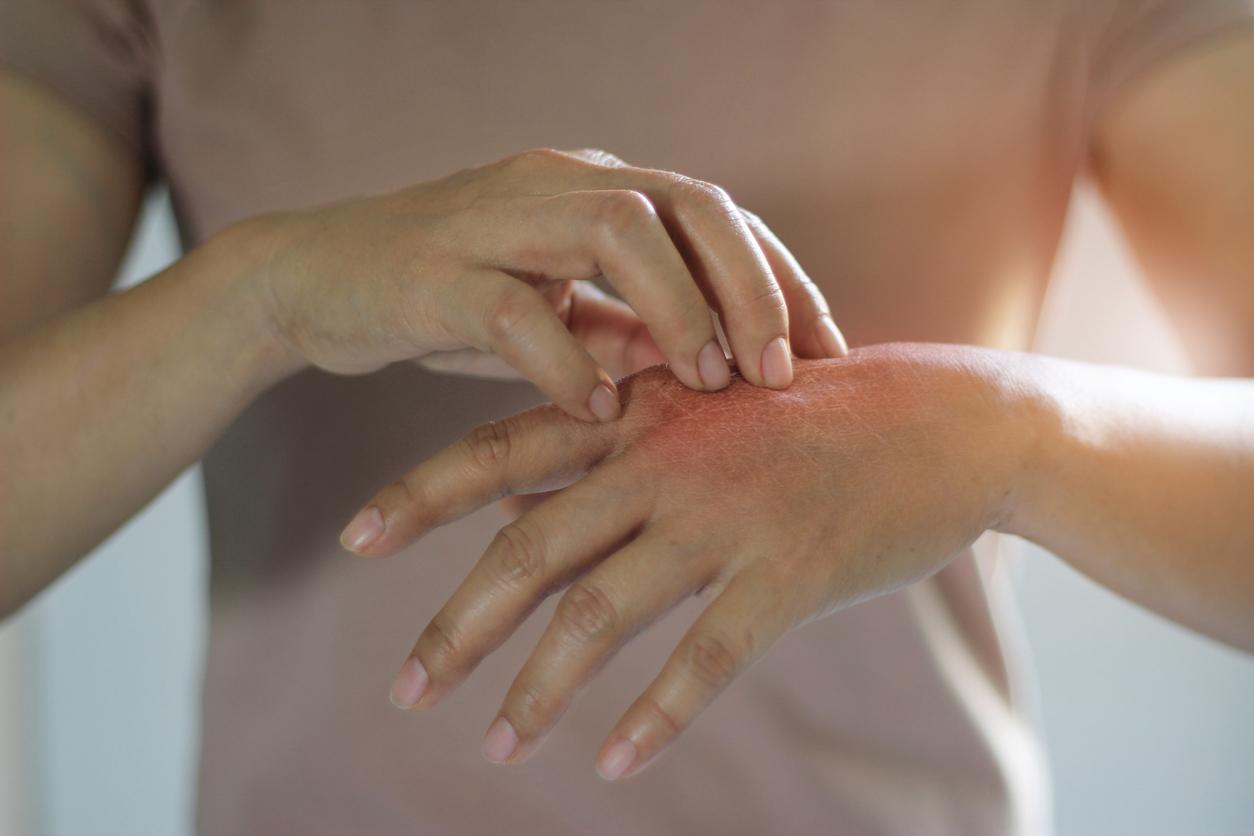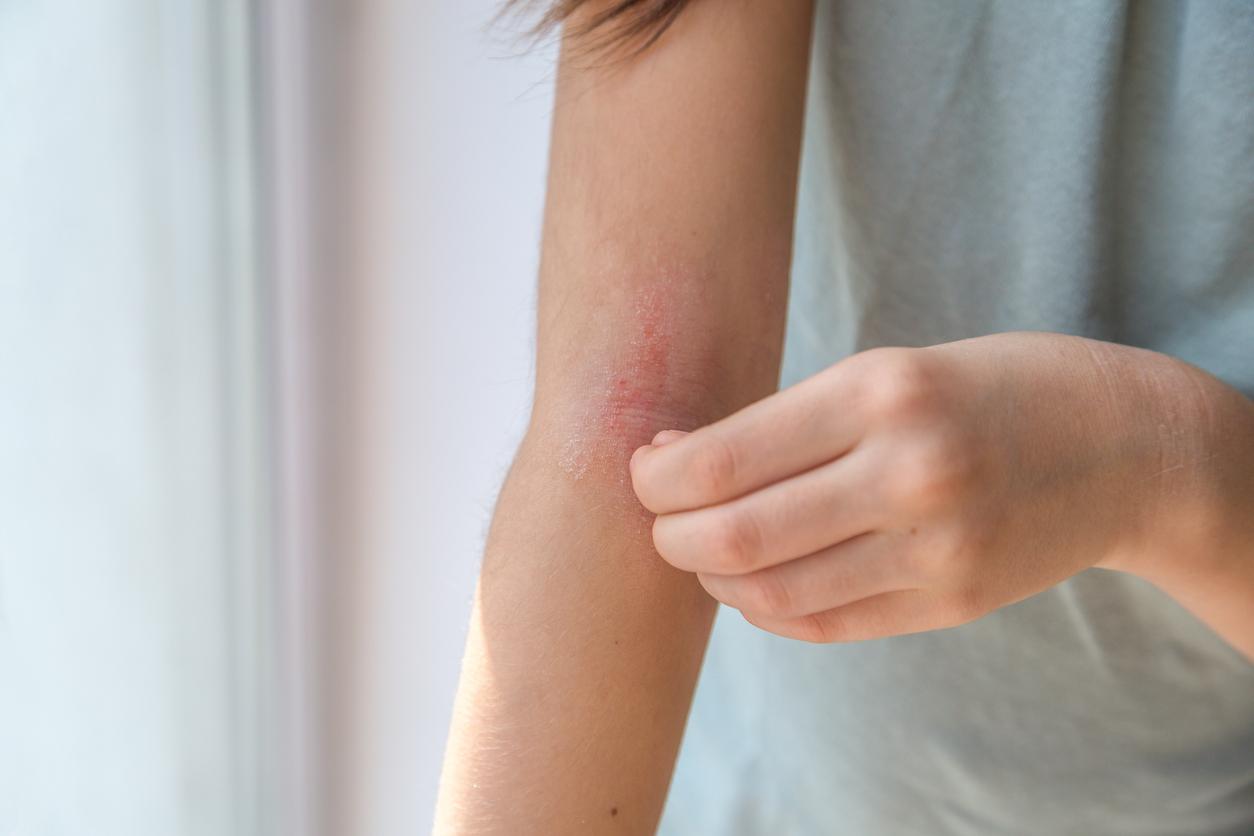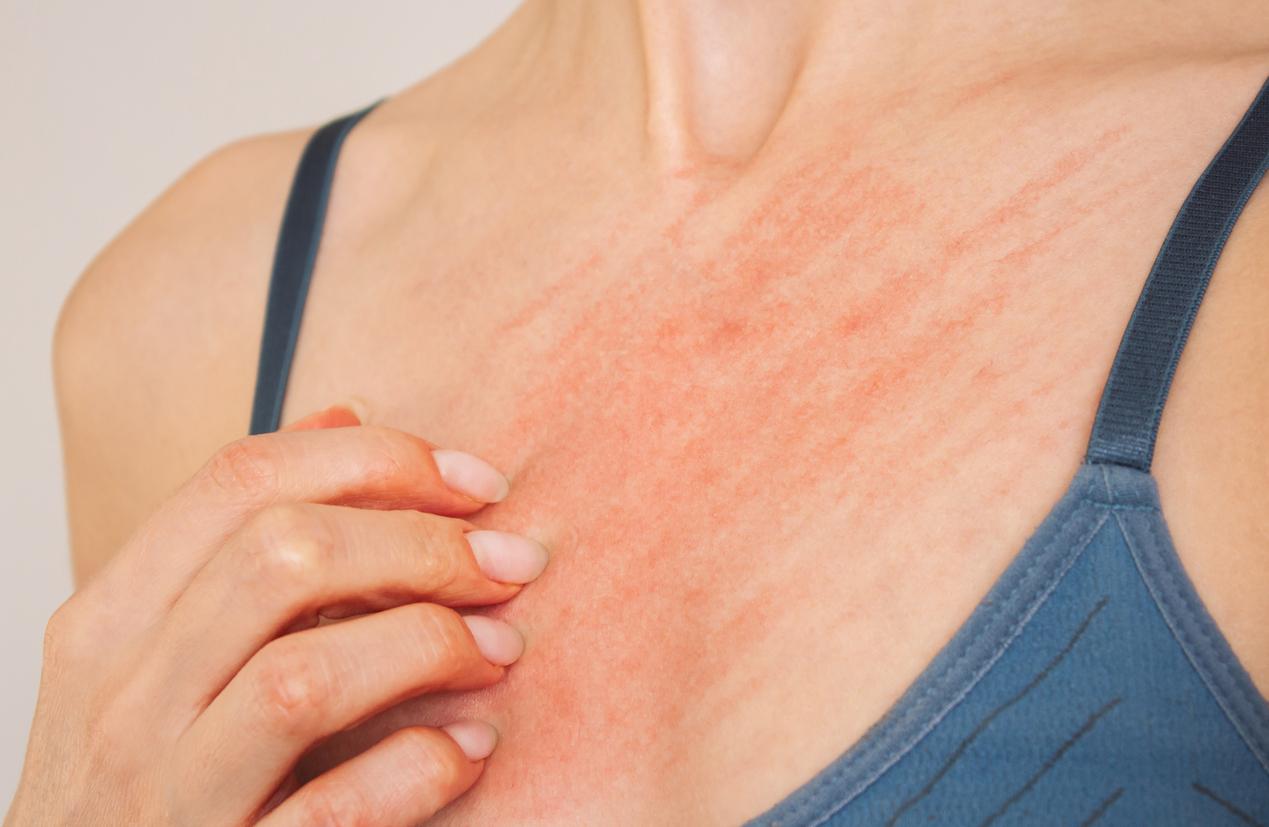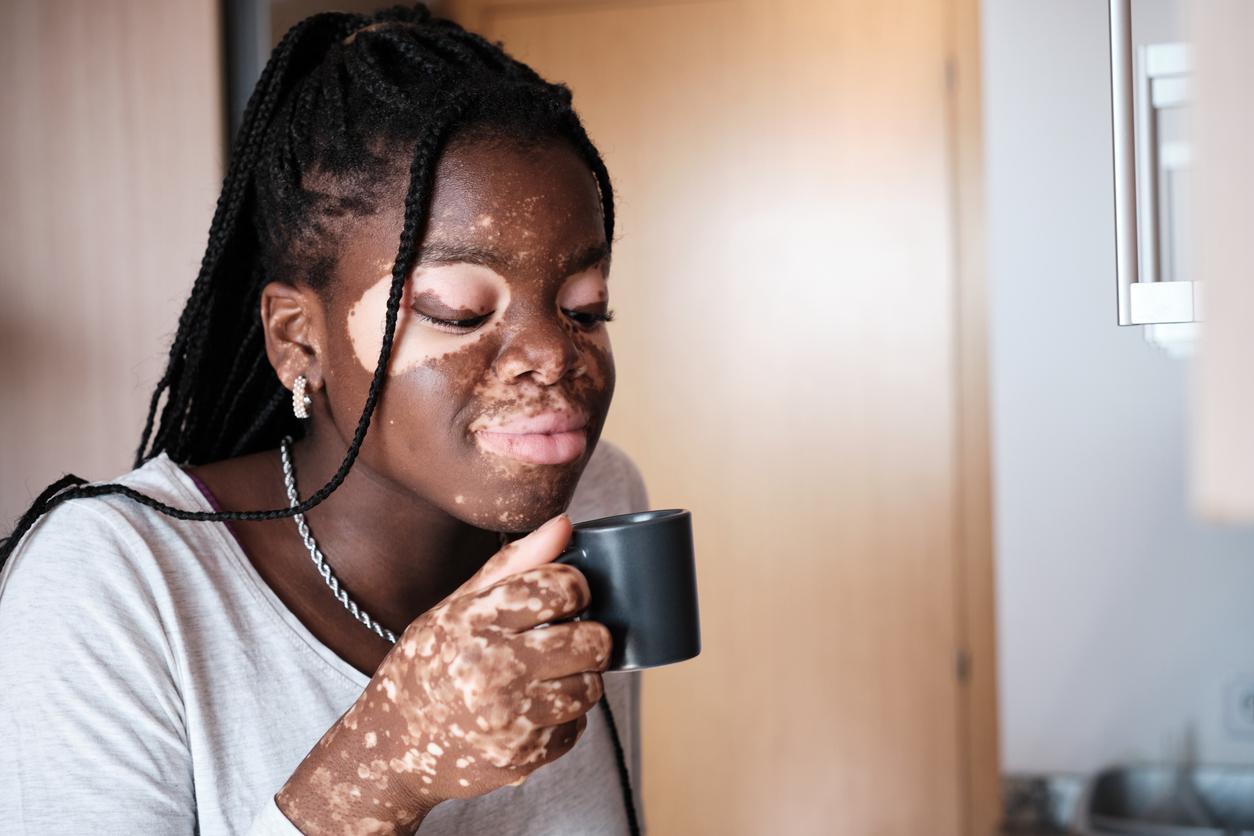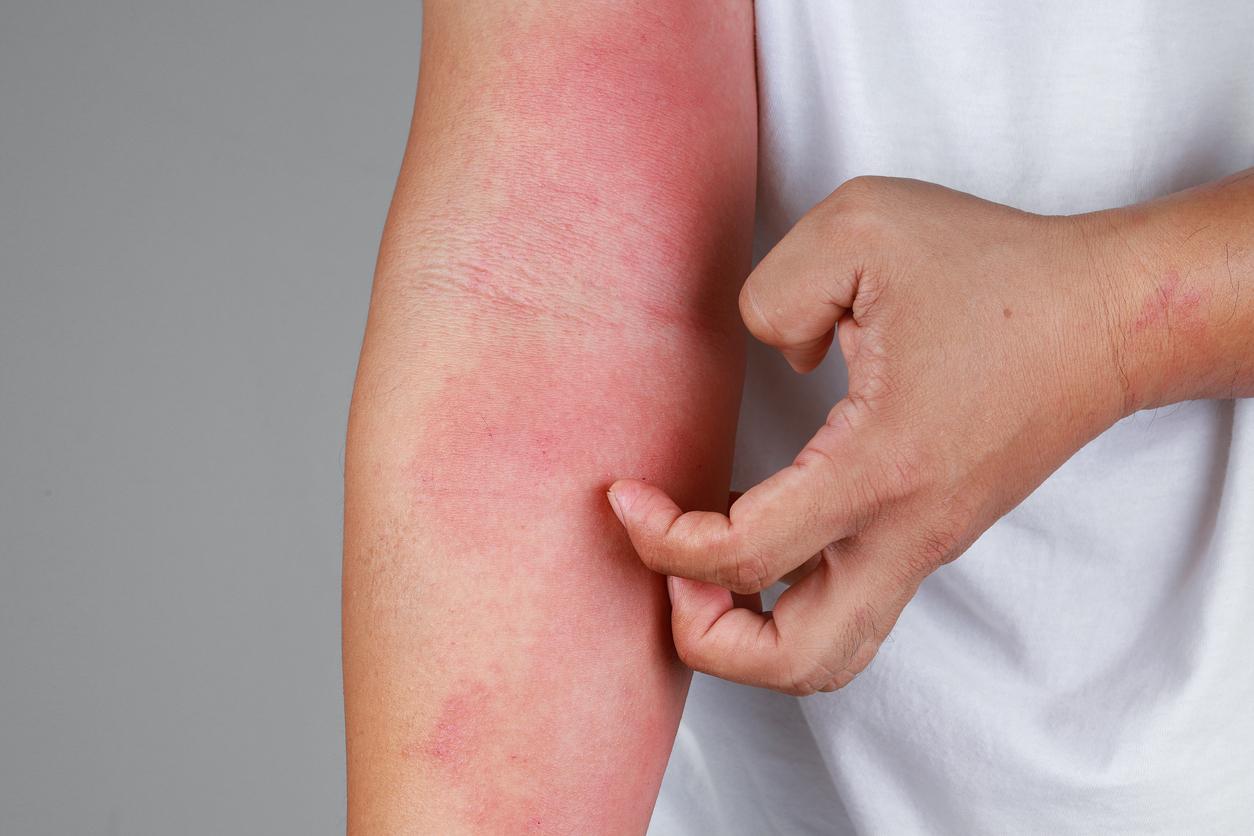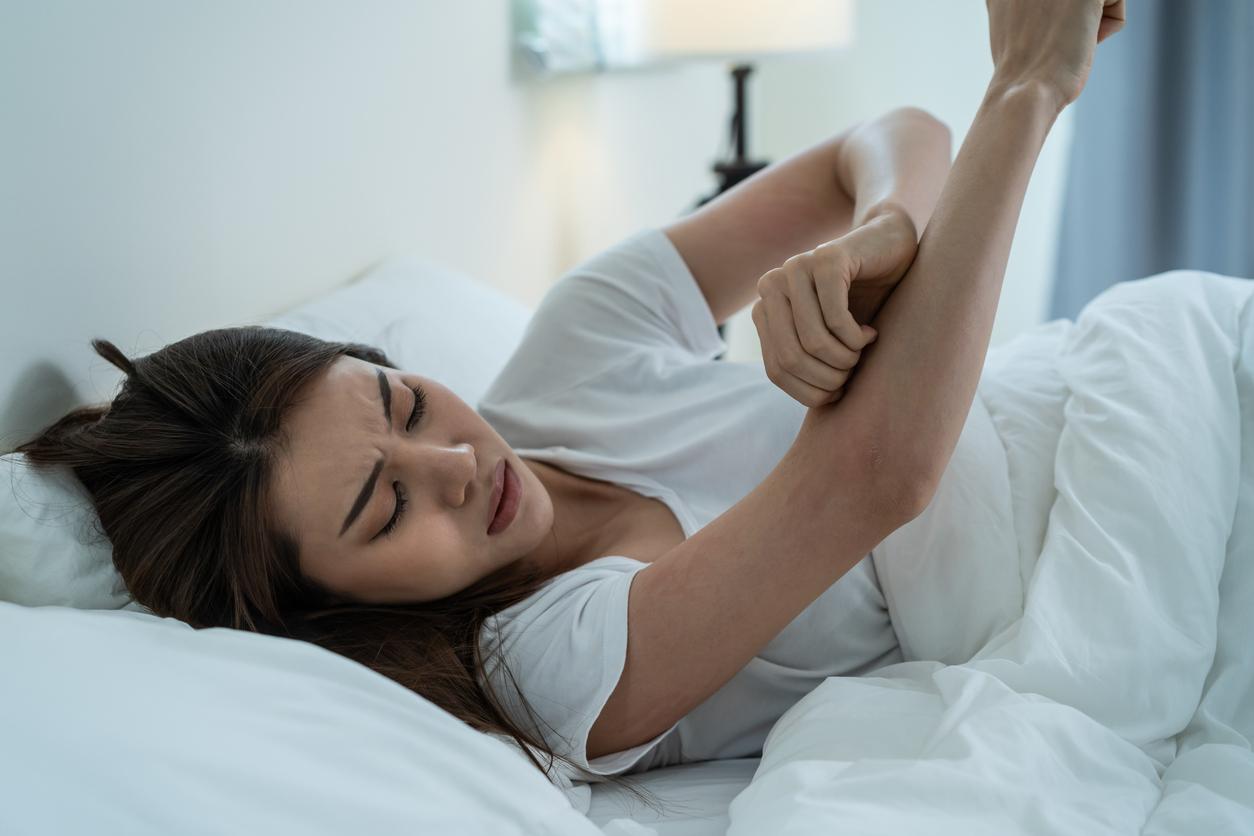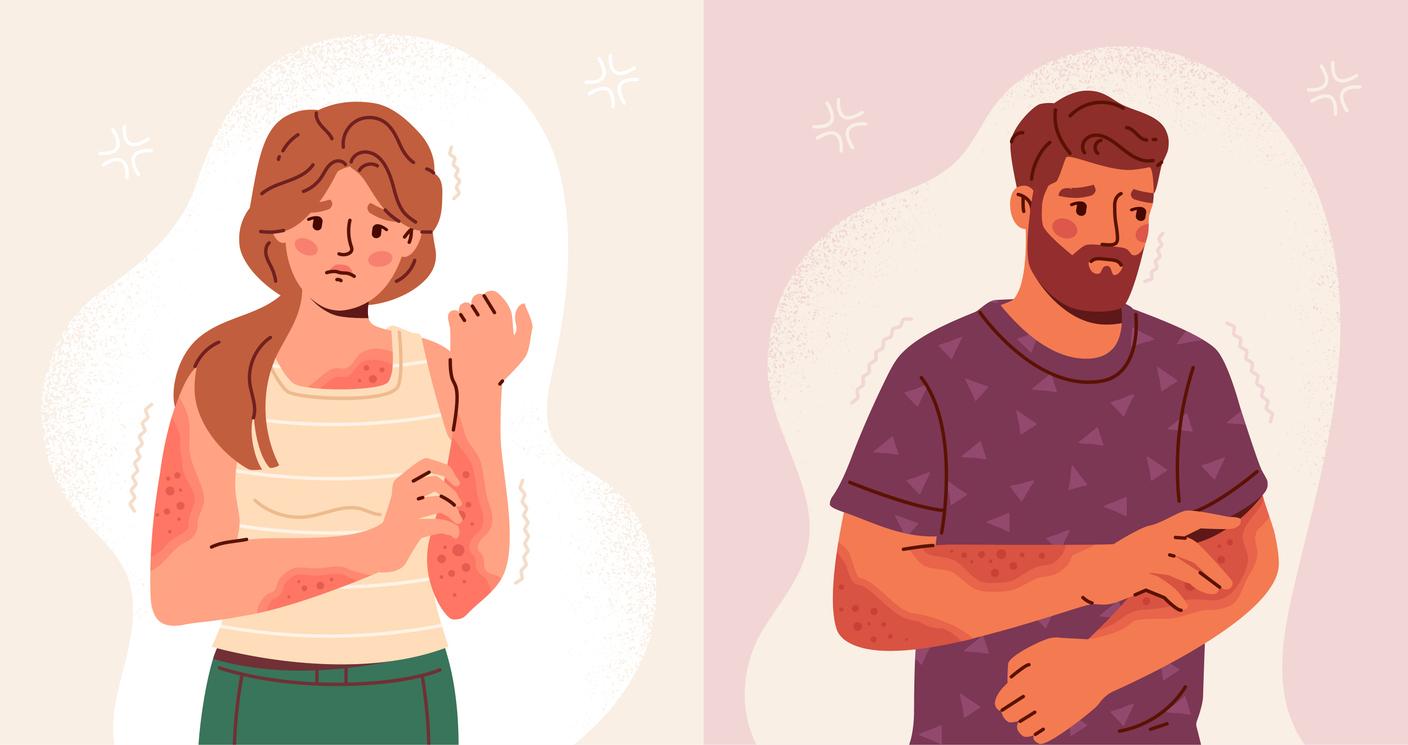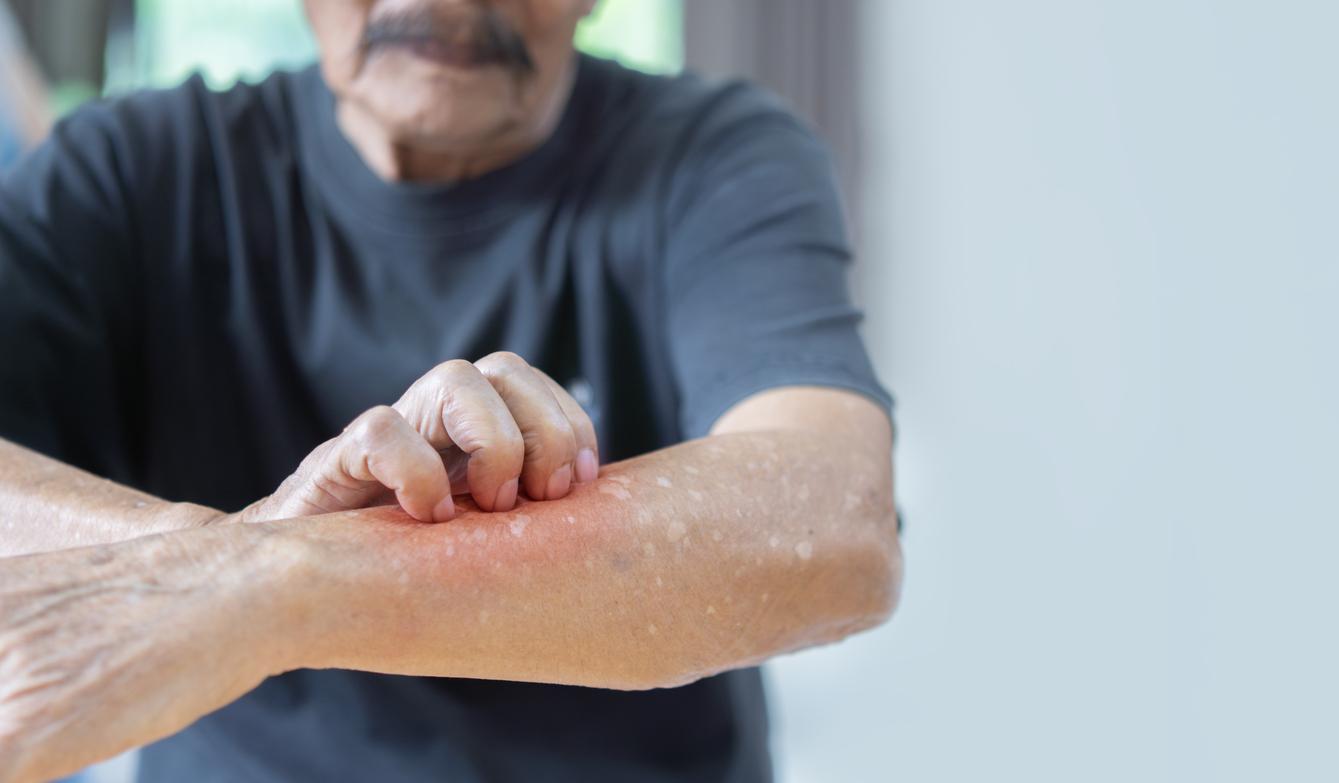Eczema is a very common skin disease which nevertheless carries many erroneous beliefs. Why Doctor takes stock of this skin condition.
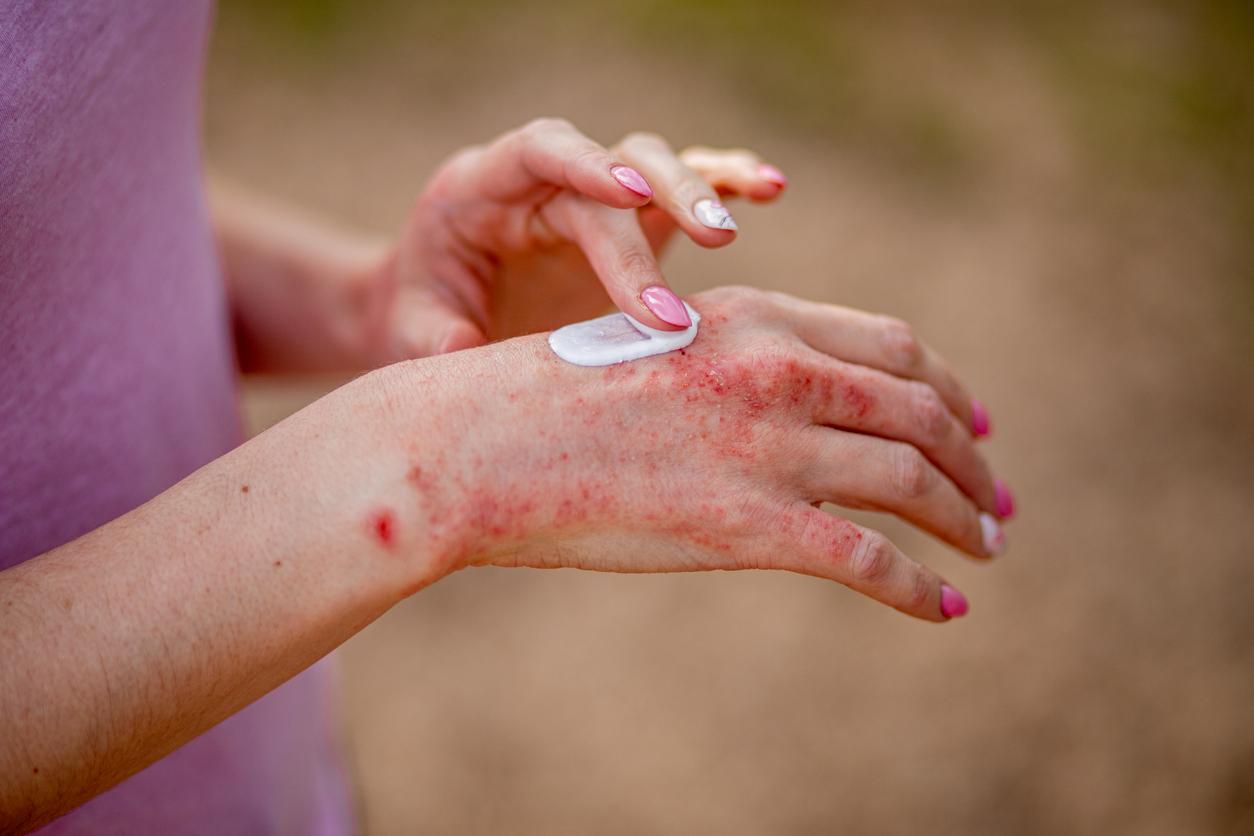
- Eczema is a common skin disease that affects 2.5 million people in France.
- Eczema affects women more often than men, it affects all age groups.
- Eczema can appear on any area of the body: in infants for example, it is mainly found on raised areas (face, forehead, cheeks, chin, arms, legs, chest).
Eczema presents a set of clinical signs and symptoms that can correspond to several inflammatory skin diseases. These disorders are characterized by itching (pruritus), congestive redness of the skin (erythema) and rash. Why Doctor takes stock of 8 preconceived ideas.
Eczema is contagious and only affects children
This is false, eczema cannot be transmitted from one person to another through physical contact alone. As recalled byFrench Eczema Association on his website : “It is an inflammatory and chronic skin disease caused by skin abnormalities and environmental factors such as allergens, irritants, friction, etc. “.
Furthermore, eczema affects 2.5 million French people, 20% of whom are children under the age of seven. 100,000 French people suffer from severe eczema.
Eczema is a psychological illness that is on the decline in industrialized countries
This is not true, there are many causes of eczema, varying from person to person. Among them, we can cite an “atopic” genetic background as well as certain environmental factors such as pollen or animal hair, as well as direct contact of the skin with irritants (soaps, detergents, rough fabrics, nickel, various allergens , etc.), certain foods or heat and sweat. However, stress contributes to the development or exacerbation of inflammatory episodes. The latter can themselves cause stress by disrupting sleep and concentration, they are also likely to impair social relationships.
It is also wrong to believe that eczema is on the decline. On the contrary, cases of eczema in industrialized countries have tripled over the past three decades. It is today the second most common skin disease after acne. This increase would be due in particular to the attacks received by our skin in an urban environment. “Urbanization, the reduction in infections which protect against allergies, increased hygiene based on detergent soaps, and the untimely ‘polishing’ of babies from birth have probably favored this expression of an atopic condition in many children.“, explains Professor Alain Taïeb, head of the dermatology department at Bordeaux University Hospital interviewed by Le Figaro.
Eczema only affects one part of the body and is caused by poor hygiene.
This is not true, eczema can appear on any area of the body. In infants, it is mainly found on rounded areas of the body: face, forehead, cheeks, chin, arms, legs, chest. In children, it is often located inside the elbow creases, the popliteal fossa (behind the knee), the ankle, the wrist or behind the ear. In adolescents and adults, it can affect any part of the body, most commonly the face, neck, and hands. Scalp eczema is equally common in all age groups. It is generally associated with the use of overly aggressive shampoos and manifests itself by more or less extensive patches as well as intense itching. More or less thick scabs may fall off when the patient scratches excessively. Some people with atopic eczema also develop it on the eyelids, an area particularly sensitive to external aggressions. In addition to red patches and intense itching, this type of eczema may also manifest as edema (swelling so much that the eyes cannot be opened) and/or scaling (the skin peels).
It is also wrong to think that eczema is linked to poor hygiene. Conversely, washing your hands too frequently can worsen the irritation. For hand washing with soap, the French Eczema Association advises patients to use “soap-free” products, soaps for atopic skin or cleansing oils and to favor fragrance-free products. You must then gently dry your hands without rubbing. Concerning hydroalcoholic gels which can cause tingling or burning sensations, it is preferable to apply an emollient cream or a non-allergenic “screen” cream to moisturize your skin after use.

Eczema can be treated with essential oils
This is false, on the contrary, essential oils are not recommended.
“Treating eczema is based on two simple principles: basic treatment through daily hydration of the entire surface of the skin and immediate treatment of inflammation.explains the French Eczema Association.
“As a basic treatment, daily hydration of the skin is essential to prevent various allergens from passing through the skin barrier and thus avoid inflammatory reactions. Hydration requires daily local (topical) treatment with emollients/moisturizers, to lubricate the skin that is still damp after a shower., specifies Doctor Delphine Staumont, dermatologist in Lille, in the press release. In the event of an inflammatory outbreak, “it is recommended to react quickly, with priority being given to topical corticosteroids on red and pruritic (itchy) lesions, including for the youngestshe continues. If necessary, topical therapeutic alternatives (Tacrolimus ointment) exist, especially for long-term use in certain areas (such as the face). (…). If local treatments fail, systemic treatments may be prescribed in addition to local treatments. This concerns the most severe cases in adults and adolescents, sometimes also in children. Note that maintaining the skin with emollients remains important to correct xerosis (dry skin).
Sport is not compatible with eczema
This is false, however, if you suffer from eczema, you should take precautions before you start exercising: choose comfortable clothes, drink plenty of water, moisturize your skin regularly and finally, take a shower fresh after the session. Of course, avoid using towels that are too rough.










